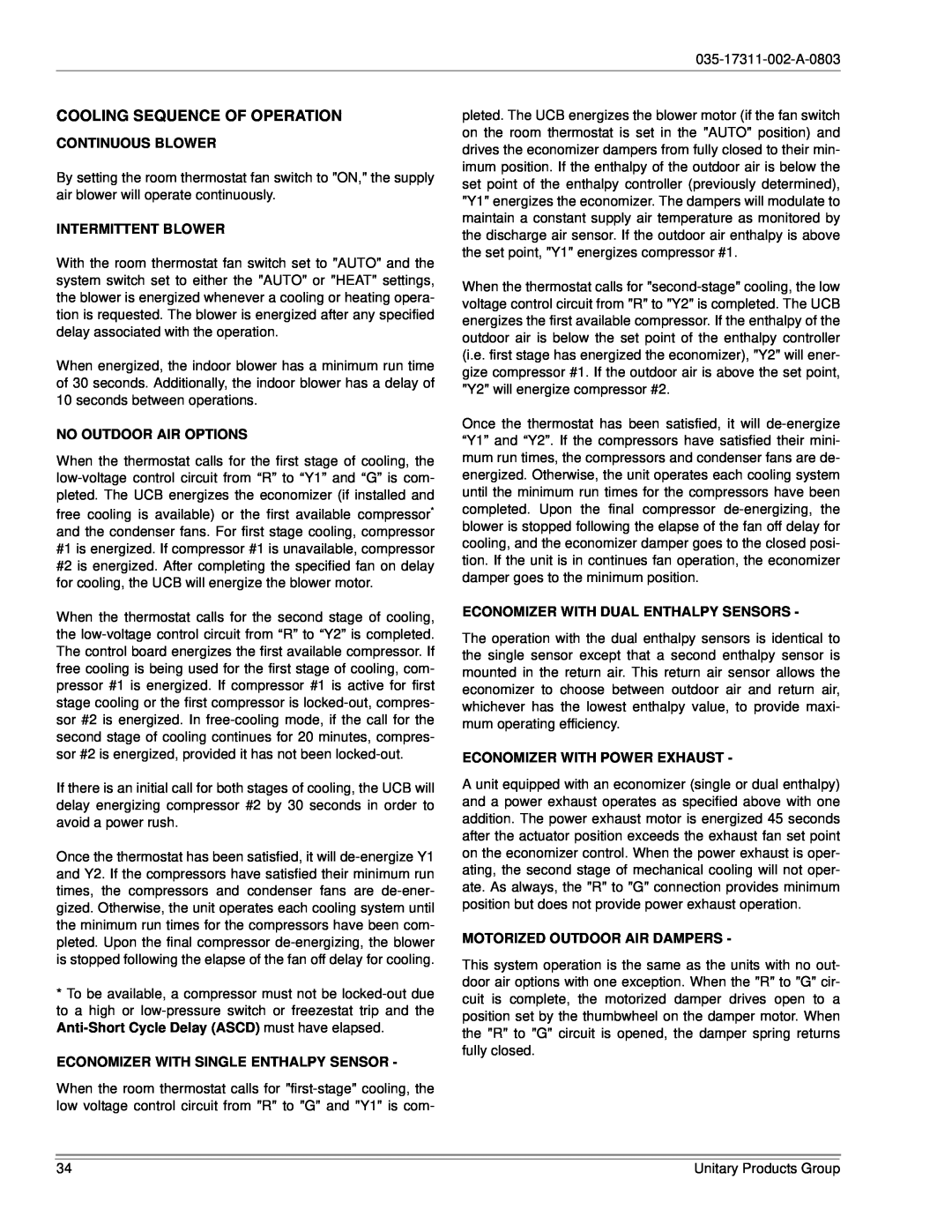
COOLING SEQUENCE OF OPERATION
CONTINUOUS BLOWER
By setting the room thermostat fan switch to "ON," the supply air blower will operate continuously.
INTERMITTENT BLOWER
With the room thermostat fan switch set to "AUTO" and the system switch set to either the "AUTO" or "HEAT" settings, the blower is energized whenever a cooling or heating opera- tion is requested. The blower is energized after any specified delay associated with the operation.
When energized, the indoor blower has a minimum run time of 30 seconds. Additionally, the indoor blower has a delay of 10 seconds between operations.
NO OUTDOOR AIR OPTIONS
When the thermostat calls for the first stage of cooling, the
When the thermostat calls for the second stage of cooling, the
If there is an initial call for both stages of cooling, the UCB will delay energizing compressor #2 by 30 seconds in order to avoid a power rush.
Once the thermostat has been satisfied, it will
*To be available, a compressor must not be
ECONOMIZER WITH SINGLE ENTHALPY SENSOR -
When the room thermostat calls for
pleted. The UCB energizes the blower motor (if the fan switch on the room thermostat is set in the "AUTO" position) and drives the economizer dampers from fully closed to their min- imum position. If the enthalpy of the outdoor air is below the set point of the enthalpy controller (previously determined), "Y1" energizes the economizer. The dampers will modulate to maintain a constant supply air temperature as monitored by the discharge air sensor. If the outdoor air enthalpy is above the set point, "Y1" energizes compressor #1.
When the thermostat calls for
Once the thermostat has been satisfied, it will
ECONOMIZER WITH DUAL ENTHALPY SENSORS -
The operation with the dual enthalpy sensors is identical to the single sensor except that a second enthalpy sensor is mounted in the return air. This return air sensor allows the economizer to choose between outdoor air and return air, whichever has the lowest enthalpy value, to provide maxi- mum operating efficiency.
ECONOMIZER WITH POWER EXHAUST -
A unit equipped with an economizer (single or dual enthalpy) and a power exhaust operates as specified above with one addition. The power exhaust motor is energized 45 seconds after the actuator position exceeds the exhaust fan set point on the economizer control. When the power exhaust is oper- ating, the second stage of mechanical cooling will not oper- ate. As always, the "R" to "G" connection provides minimum position but does not provide power exhaust operation.
MOTORIZED OUTDOOR AIR DAMPERS -
This system operation is the same as the units with no out- door air options with one exception. When the "R" to "G" cir- cuit is complete, the motorized damper drives open to a position set by the thumbwheel on the damper motor. When the "R" to "G" circuit is opened, the damper spring returns fully closed.
34 | Unitary Products Group |
